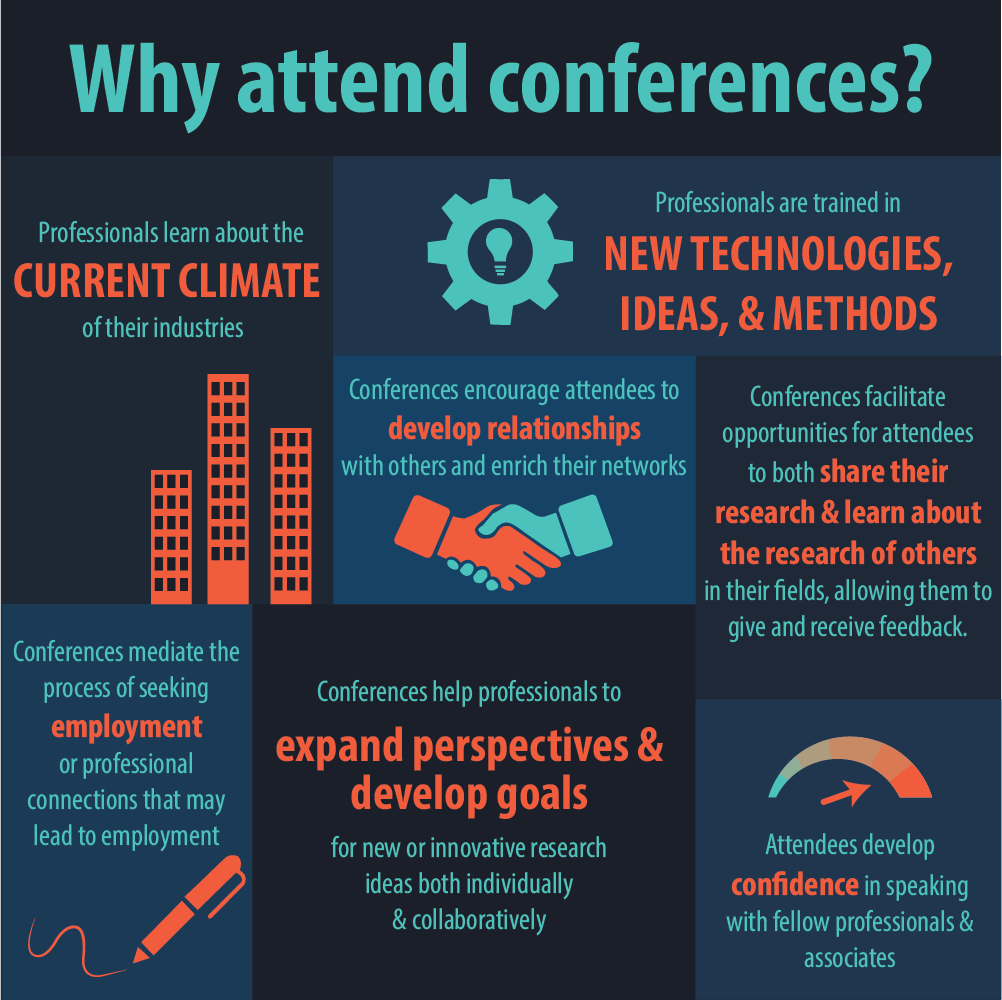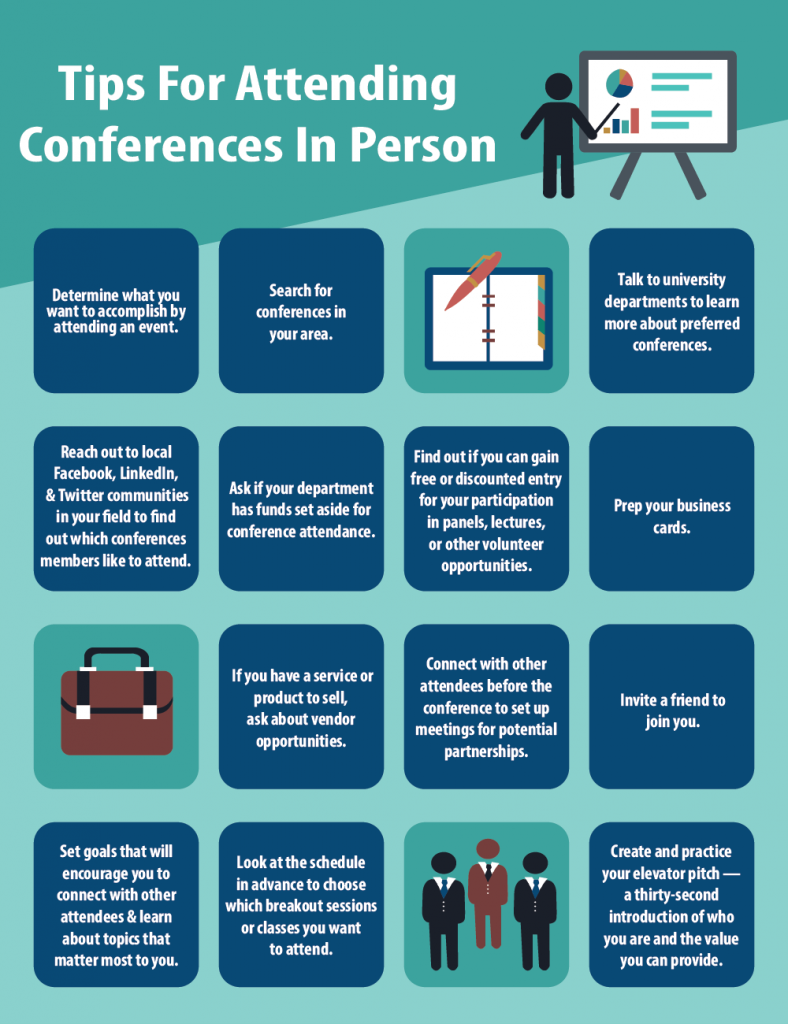What is a conference?
Conferences are a fantastic way to meet with people who have similar interests as you. Usually over the course of a few days, people meet to discuss an overarching topic, share ideas, and participate in a group experience.
While there are many conferences that focus on personal interests, such as Comic-Con, Needlepoint Palooza, and trade shows, there are also many conferences that focus on professional training and development.
Why is attending conferences an important part of professional development?

Why make an effort to attend conferences in person?
Conferences are all about collaboration, and although conference committees have worked hard to create productive and interactive virtual conferences for their communities and associations, many would argue that in-person attendance has far more merit.
The medium of virtual conferences unquestionably restricts attendees’ abilities to interact informally, and they therefore place the goal of learning at the center of a virtual conference program. In contrast, many of the items in the above list are interactive activities that become more effective as attendees immerse themselves in a face-to-face experience that places collaboration as the central goal of the conference.
Aside from the interactive goals listed above, there are other special opportunities that only in-person conferences can create, like traveling to a new location, hearing from and even meeting leading field researchers, and participating in entertaining giveaways, book signings, and evening events.
What are some tips for attending conferences in person?
It’s not a secret that conferences can be intimidating, especially for new attendees. Here are some tips for finding the right conference for you and preparing to attend.
1. Determine what you want to accomplish by attending an event—are you looking for clients, wanting to pitch an idea, seeking feedback, trying to develop your network, or looking to learn more from speakers in a given field?
2. Search for conferences in your area.
3. Talk to university departments to learn more about preferred conferences.
4. Reach out to local Facebook, LinkedIn, and Twitter communities in your field to find out which conferences members like to attend.
5. Ask if your department has funds set aside for conference attendance.
6. Find out if you can gain free or discounted entry for your participation in panels, lectures, or other volunteer opportunities.
7. Prep your business cards.
8. If you have a service or product to sell, ask about vendor opportunities.
9. Connect with other attendees before the conference to set up meetings for potential partnerships.
10. Invite a friend to join you.
11. Set goals that will encourage you to connect with other attendees and learn about topics that matter most to you.
12. Look at the schedule in advance to choose which breakout sessions or classes you want to attend.
13. Create and practice your elevator pitch—a thirty-second introduction of who you are and the value you can provide.
Download a graphic of these tips to use in your conference preparations:

Which conferences does MyEducator attend?
MyEducator’s team attends several conferences as affiliates and exhibitors with the goal to meet individuals and companies interested in partnering with us to create and utilize innovative educational resources. You can see MyEducator’s booth at the following conferences throughout the year.
|
ISECON |
|
|
TACTYC |
|
|
SHINGO |
Shingo Conference | Jon M. Huntsman School of Business Shingo Institute |
|
POMS |
|
|
SHRM |
|
|
GMAC |
|
|
IACIS |
International Association for Computer Information Systems Conference |
|
INFORMS |
The Institute for Operations Research and the Management Sciences Conferences |
|
EDSIG |
|
|
NATCOM |
|
|
DSI |
We would love to see you at one of these conferences! However, if you can’t wait until then or if you have questions now, please reach out to our team at support@myeducator.com or browse our website to learn more about what we do here at MyEducator and what resources are available to you.


